Do you want to grow in your role?
Why attend an Equipping Seminar or Workshop? To gain new insight, knowledge, and skills around best practices in a short, intensive format. Designed for administrators, teachers, parents, leaders, department heads – anyone seeking to learn and grow in their role.
Do you desire to delve into a specific topic or skill? Are you helping your school grow into its next stage? Are you new to your position? Do you find yourself needing vital skills and best practices to develop a successful plan for your school, department, or team? Equipping seminars and workshops are designed to provide you fundamental best practices for your role.
Seminars are two hours in length and designed to provide a high-level overview. These are an ideal way for busy leaders to gain a broad understanding of a topic. Seminars also serve as a great introduction to a topic before committing to a six-hour workshop or year-long cohort.
Workshops dive a little deeper into a topic and are six hours in length stretched over either 3, 4, or 6 days.
Winter Workshops
Workshops for Leaders
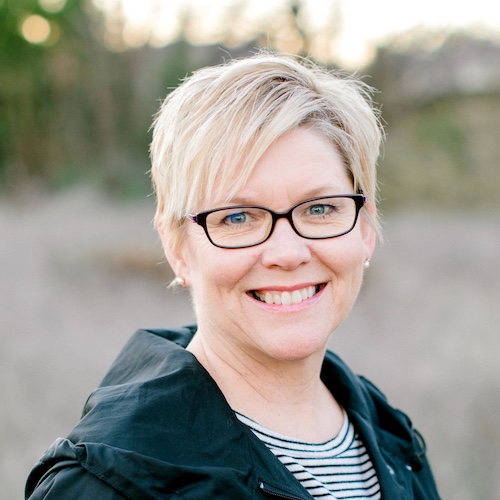
Description:
What keeps you up at night as a college advisor? Is it partnering with parents or conversations with students? Are you struggling to find your next steps in a broader culture that says education is about getting into the “best” schools as a hallmark of a job well done? Are rising college tuition fees creating more conversations about the common arts and how to guide students to know their place in the world of work? We tackle these questions, and more, in this six-week workshop where we explore the current cultural moment in the workforce and higher education and its impact on the vocational discipleship of the next generation. Participants will join a discussion about the need for vocational discipleship at their institution and learn some practical ways to deepen the conversations they are already having to include it.
Syllabus:
God’s Call on Your Life and What to Do About It
Every vocational discipleship relationship begins with God. How do you think about your relationship with your students? Are you a guide? A Mentor? In this session, we get clear about the call of God on our lives and how we integrate our own calling with our classical mindset.
The Next Generation of Parents
Do you stay awake at night thinking about parent conversations? Are some parents just more than you can handle? In this session we look at the available data to discover what is going on in parenting and create a plan to serve our parents well because we are called to do so.
The Next Generation of Students
It makes sense that students are stressed; just look at the world around them! But is that the real story? Previous generations lived through war and famine, rising divorce rates, and nuclear threats; and yet, they made it through. What is different today? In this session we will explore achievement culture, technology, and anxiety.
Trends in Higher Education and Trades
More and more parents are asking about trade school, particularly for young men. In this session we will explore liberal arts and common arts and how to support students in creating cohesive adult lives through an integration of both.
Vocational Discipleship: Learn the Basics
Have you wondered how you might integrate vocational discipleship into your institution’s current offerings? In this session, we explore options for shifting the conversation and the impact it might have in your community.
Assessments: How to Use Assessments to Promote Reflection
Are you thinking about using assessments to aid in your college and career conversations? In this session, we will discuss how to use the assessments you currently have and how to deepen your discussions with families about pathways into adulthood.
Bio:
Tami has decades of experience in the field of education, serving as a teacher, counselor, and administrator. For twelve years she served as Director of College Advising at Covenant Christian Academy, a classical, Christian PK-12 school, in Colleyville, Texas.
In 2012, Tami founded Life Architects Coaching where she serves clients in discovering their calling through vocational discipleship as a college and career coach. She supports churches and schools by providing professional staff development and program consultation. In 2015 she was one of three designers of the curriculum for the NACCAP College Counselor Certification Program and was an instructor and the project manager for the first five cohorts.
Tami has numerous certifications in teaching and coaching, and has recently earned an M.A. in leadership, Theology, and Society from Regent College, Vancouver, BC, Canada.
She and her husband David live in the Dallas/Fort Worth Metroplex and have two adult children.
Meeting Dates and Times
Feb 6, 13, 20, 27, Mar 6, 13 from 1:00 – 2:00 pm CT.
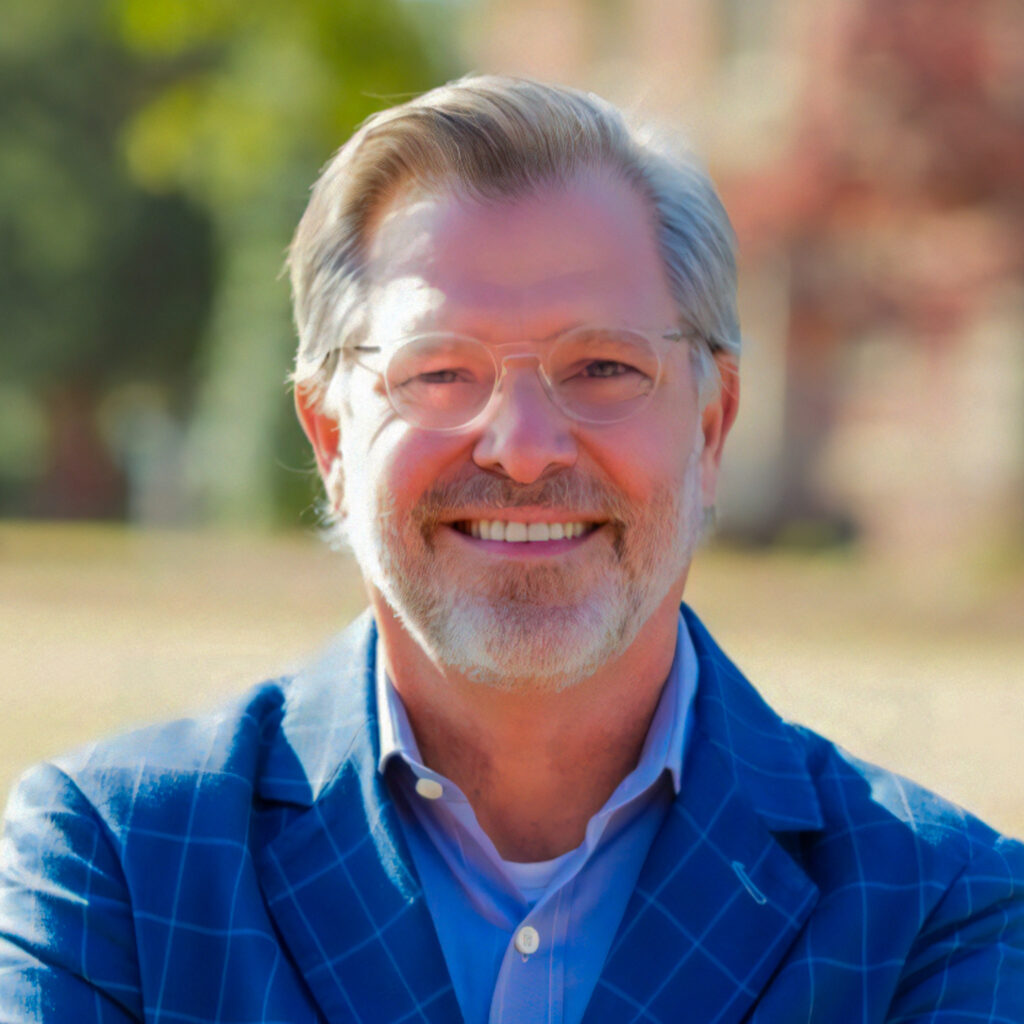
Description:
Given that most school heads don’t begin the job with a strong financial background, it is not unusual for a board member or someone in the business office to know the numbers better than the head of school. This puts the head in a weak position to lead and make the most prudent decisions. In this session we will cover why it’s crucial that the head is the financial leader, understanding the school’s finances better than anyone. We will discuss how the head works together with the board to ensure the financial health of the school.
Syllabus:
The HoS as Financial Leader
Introduction, Definitions, and Roles
The Role of the Board
One of the board’s four key responsibilities is to ensure long-term financial health and stability, but too often it is not clear what the board should be doing versus the head of school and his/her team. Complicating matters further is how start-up and young schools need extra board support until the school matures. We will discuss the challenges and offer principles and practices that will meet your school wherever it is.
Cost-Based Tuition and Hard Income
What does it mean to operate your school with “hard income” and what does that mean for tuition? We will look at the “cost-based tuition” model compared to common financial models that depend on fund-raising to make ends meet. Then, we will examine how to transition your school to a more sustainable, viable position.
Strategic Financial Planning: Building a 5-7 Year Forecast That Works
Do you have a good idea of what your tuition rates will be in five years? What about your income and expenses? How much will you be able to grow your cash reserves in that time frame? If the answer is “I don’t know” or “I am not sure,” then this session is critical for you. Having at least a five-year detailed forecast is the most important tool for making good decisions today.
Growing Your School and Your Bottom Line through Tuition Assistance
The true costs/benefits of a Tuition Assistance program are often not clearly understood. Many administrators and board members have a hard time understanding how a generous Tuition Assistance program can actually grow the school, and increase the bottom line annually. Done right, this can absolutely be the case; the growth is more than just enrollment growth as your school begins to serve a broader demographic.
Fund-Raising: How Does It All Work?
There is probably not an area of school leadership that causes as much fear and anxiety as fund-raising. Frequently, the roles, responsibilities, and processes for fundraising are unclear. We will discuss all things development: roles, the annual fund, capital campaigns, relational donor stewardship and more.
Bio:
Keith Nix has served as the Head of School at Veritas since 2010. Mr. Nix has served as Chairman of the Board of Society for Classical Learning (SCL), Vice Chairman of the Board of Association of Classical and Christian Schools (ACCS), and President of the Board of Academic Advisors for the Classic Learning Test (CLT). He consults and coaches classical Christian school boards and leaders and currently teaches at Gordon College in their Graduate Leadership Program, equipping Classical Christian school leaders. Prior to moving to Veritas in 2010, Keith was a board member and then later Head of School at The Westminster School in Birmingham, Alabama. He is a founding Arête Fellow, and he facilitated the Arete Fellowship for many years. Prior to working in classical Christian schools, Keith was President of Nixgroup, a boutique consulting firm working with start-up and early-stage organizations and businesses. Mr. Nix enjoys tennis, golf, and great books. He is married to Kim, an accomplished artist; the Nixes have three grown children and two grandchildren.
Meeting Dates and Times
Feb 4, 11, 25, Mar 4, 18, 25 from 2:00 – 3:00 ET
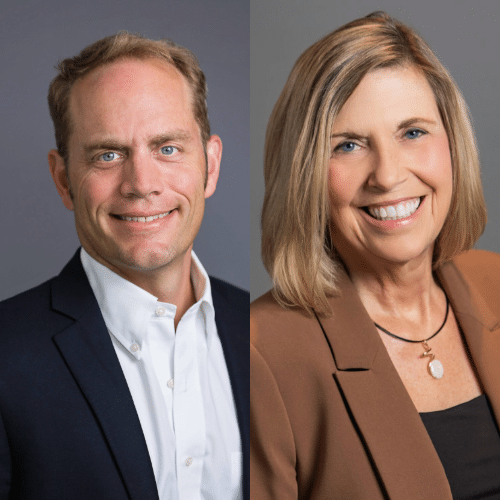
Description:
From setting and maintaining tuition, to marketing to your school, to developing or enhancing your philanthropy program and culture of generosity, Brad and Jan will help you adopt a biblical and relational approach to fundraising as a way to secure a sustainable system of revenue and resources for your school, care for the school’s financial partners, and fund the strategic organizational efforts of your school. All of these activities can be achieved in ways that advance your compelling mission, year over year.
Syllabus:
Session One – Foundations: Understanding the Importance of a Case for Support
In this foundational session, participants will learn why a well-crafted Case for Support is critical for engaging donors and partners in classical Christian education. We’ll cover how the Case for Support articulates the school’s mission, vision, and the specific needs it addresses. We’ll also introduce the biblical principles that undergird relational fundraising, drawing on the concept that people give to causes they trust and believe in.
Key Topics:
- What is a Case for Support and why it matters for classical Christian schools.
- Understanding your school’s distinct role in shaping the next generation of Christ-
- followers.
- Exploring how biblical principles of stewardship and partnership apply to fundraising.
Outcomes:
- Participants will understand the foundational elements of a Case for Support.
- They will begin drafting the core message of their school’s case based on mission, vision,
- and values.
Session Two – Defining the Need: Connecting Your Mission with Donors’ Hearts
In this session, we’ll dive deeper into how to express the specific needs your school addresses, both practically and spiritually. Participants will learn how to present a compelling narrative that connects the school's mission to the broader kingdom work, framing financial support as a partnership in that mission. The focus will be on using storytelling and real-world examples to show the impact of a classical Christian education.
Key Topics:
- Articulating your school’s unique mission and the specific problem it addresses.
- How to frame your school’s needs in a way that resonates with donors’ values and
- passions.
- Storytelling as a tool to connect donors with the school’s mission and outcomes.
Outcomes:
- Participants will refine the need statement for their Case for Support.
- They will develop at least one narrative or testimony that demonstrates the school’s
- impact on students and families.
Session Three – Crafting a Vision for the Future: Inspiring Donors to Join the Journey
A powerful Case for Support doesn’t just address the current needs of the school—it paints a picture of a God-glorifying future. In this session, participants will learn how to articulate their school’s long-term vision and invite donors to play a pivotal role in that journey. We’ll discuss how to tie the vision back to the school’s mission, emphasizing eternal impact and kingdom-building.
Key Topics:
- Developing a compelling long-term vision for your school’s growth and impact.
- Communicating how donors' support is integral to achieving this God-centered vision.
- Engaging donors in a shared vision of preparing students for leadership and service in
- God’s kingdom.
Outcomes:
- Participants will draft the vision section of their Case for Support, connecting future
- goals with current needs.
- They will identify key strategic initiatives (such as building projects, scholarship
- programs, or curriculum development) that align with this vision.
Session Four – Presenting Your Case: Putting It All Together and Making the Ask
In the final session, participants will learn how to compile all the elements of their Case for Support into a cohesive, persuasive document that can be used in donor meetings, events, and communications. We will focus on how to make a clear and effective ask, ensuring that the case inspires action. Participants will also practice presenting their case in small groups, receiving feedback and refining their approach.
Key Topics:
- Structuring the Case for Support for clarity and impact.
- How to present the case to potential donors in a way that inspires confidence and
- generosity.
- The art of making the ask: how to invite people into meaningful partnership.
Outcomes:
- Participants will have a completed draft of their school’s Case for Support.
- They will practice delivering their case and making a donor ask, receiving peer and
- facilitator feedback.
Final Deliverable:
By the end of the workshop, participants will have a fully developed Case for Support that clearly communicates the mission, vision, and needs of their classical Christian school. They will also gain confidence in presenting this case to donors, ensuring they have the tools to build strong, lasting partnerships that advance the school’s mission.
Meeting Dates and Times
Feb 3, 10, 24, and Mar 3 from 3:00 – 4:30 ET
Workshops for Teachers
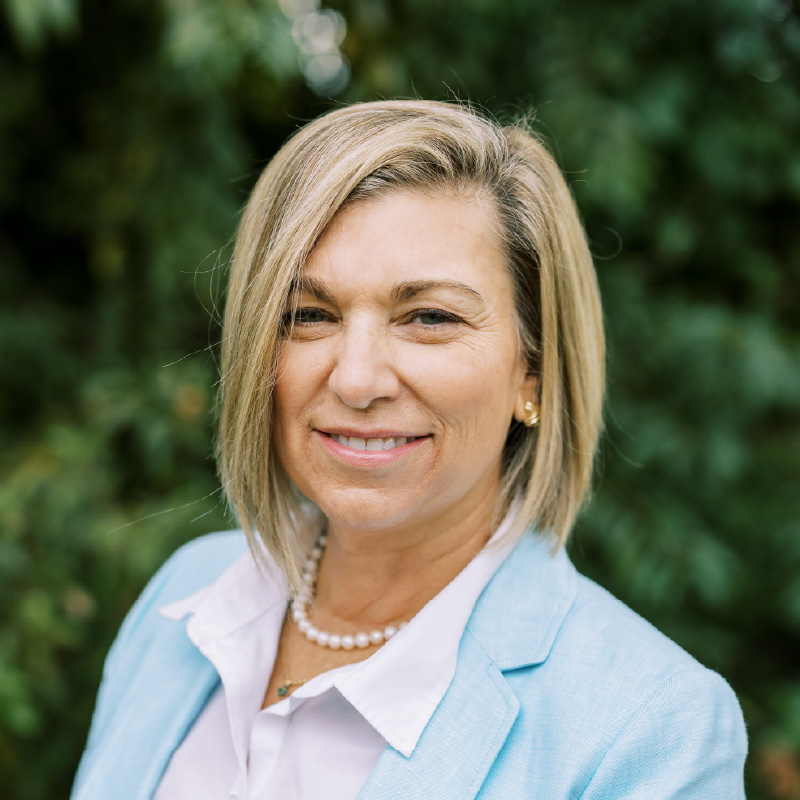
Description:
Looking for a better way to teach math? Singapore Math has emerged as one of the leading elementary math programs in the world according to international studies (TIMSS). With this approach, students will not only know how to solve problems, but they will also develop a deep understanding of how math works. This interactive and engaging workshop is ideal for newly hired teachers who will be teaching math using Singapore Strategies. It is also designed for math teachers who desire to further expand their teaching repertoire. Participants will be exposed to high-quality mathematical content, including videos, relevant readings, and effective learning tasks. Participants will also have multiple opportunities to collaborate with other educators.
Syllabus:
Session 1—Singapore Math Introduction: Changing a School and Math Classroom Culture
Session 2—Mathematical Thinking: Developing Habits of Mind and a Growth Mindset for Math and Beyond
Session 3—Number Sense: “The Key to Mathematical Success in all grades.”
Session 4—Daily Lesson Structure: “How to fit it all in?”
Session 5—Mathematical Literacy including Fact Fluency
Session 6—Singapore Essentials: Differentiation for all types of Learners, Parent Education, New Students, Professional Learning and Singapore Math Impact on the K12 Curriculum
Bio:
Dr. Mo Gaffney is an accomplished leader and educator with over twenty years of experience. She earned a B.A. in Early Childhood Education, an M.Ed. in Elementary Education, and an Ed.D. in Curriculum and Instruction, all from the University of Virginia. She has taught at the elementary level in both public and private schools and has been an adjunct professor at the University of Virginia teaching courses in the Department of Curriculum and Instruction. She served as Head of the Covenant Lower School in Charlottesville, Virginia, where she successfully implemented a Christian Liberal Arts and Sciences philosophy and curriculum. Her work in Christian education most notably includes reforming mathematics with the implementation of Singapore Math strategies in grades K-5. Dr. Gaffney serves as a consultant, leads professional development workshops at both classical and independent schools, and presents at national conferences including SCL. Dr. Gaffney’s presentations include topics such as Singapore Mathematics, teacher evaluations, reading & writing connections, homework, and leadership. She is known as a transformational, creative leader and a strategic thinker with humility and a sense of humor.
Meeting Dates and Times
Jan 20, 27, Feb 3, 10, 17, 24 (Monday) from 4:00 – 5:00 pm ET.
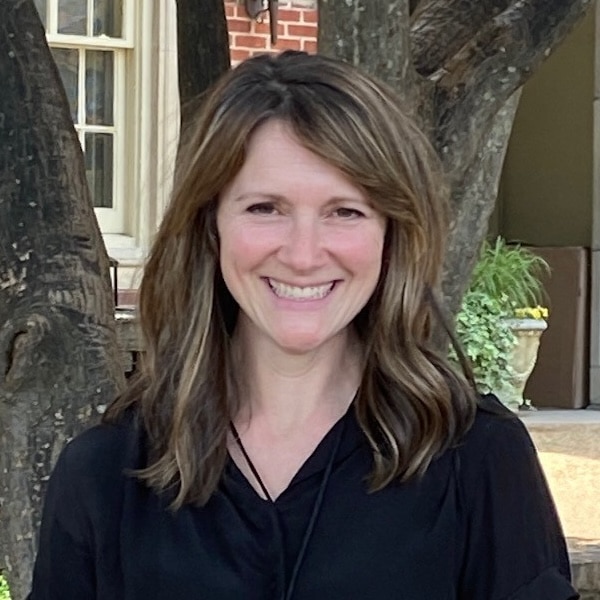
Description:
In this four-session workshop, we will explore Charlotte Mason’s pillars of education and learn how to apply them in our classical classrooms as grammar school teachers. Participants will gain a stronger vision for how to teach classically in a grammar school setting as we understand how Mason’s views connect with the liberal arts tradition. Additionally, participants will learn practical ideas for implementation.
Syllabus:
Education is an Atmosphere:
The Atmosphere of the Teacher as Shepherd and Muse
The Atmosphere of the Classroom Culture as Cultivating Piety
The Atmosphere of Learning as Awakening Wonder
The Atmosphere of the Classroom as a Place of Beauty and Peace
Education is a Discipline:
Cultivating Habits of Relationship: Interacting with God and others
Habits of Learning: Attention, Organization, Responsibility and Excellence
Habits of the Classroom: Classroom Routines, Peace Time Conversations,
Education is a Life:
Ideas are Primary
Using Worthy Books
The Arts of Grammar, Dialectic, and Rhetoric
The Skill of Narration
Education is a Science of Relationships:
Nurturing Poetic Learning
Liturgies of Lessons
Bio:
Before entering the field of education, Katie worked in college ministry in Virginia and in China. Katie has been in the classroom for twelve years at Veritas School in Richmond, Virginia, where she has taught preschool, second grade, and fourth grade. Additionally, she has written curriculum and is currently mentoring new grammar school teachers.
Katie began teaching at a Charlotte Mason school in Saint Louis. She has integrated many of Charlotte Mason’s methods into her own teaching and has introduced Mason’s methods to the entire Veritas Grammar School. Katie has led faculty workshops about narration, poetic learning, artist study, and nature study. She has a passion for helping lower school teachers discover how to use Mason’s philosophy and pedagogy within their own classical classrooms.
Katie and her husband have four children (three daughters and one son).
Meeting Dates and Times
Feb 4, 11, 18, 25 from 6:30 – 8:00 pm ET.
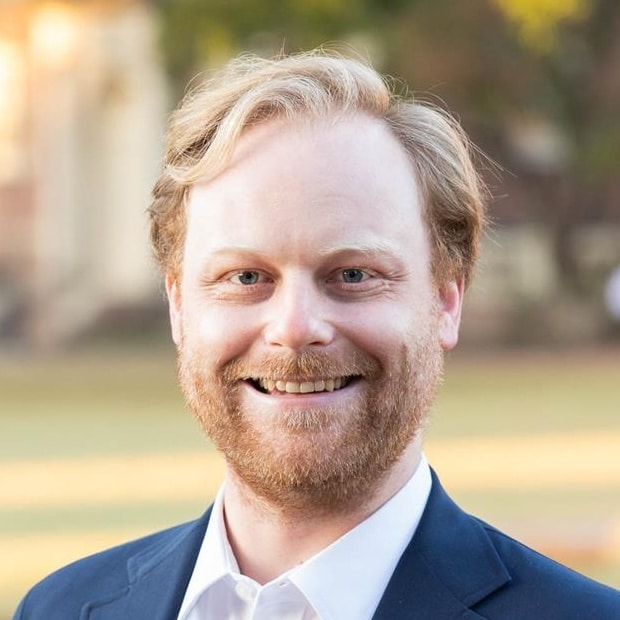
Description:
Classical educators, myself included, often enter their classrooms armed with a rich knowledge and vibrant enthusiasm for their subject, but with minimal, if any, training in how to run their classrooms. In fact, some recent evidence suggests that only 40% of teacher training programs at the university level provide comprehensive preparation in classroom management! This workshop seeks to provide teachers with a structured framework for managing their classrooms that is consistent with the classical tradition of education and complemented by evidence arising from behavioral psychology and cognitive science. Teachers will acquire a preventative system of running their rooms, as well as tactics to use in situ. In particular, we will discuss such topics as: establishing norms, rules, and routines; issuing consequences; setting the narrative with students; and interacting with parents.
Syllabus:
Session 1: “O Captain! My Captain!”
This session will first consider what classroom management is, what it is not, and the all-important role of the teacher at the helm of the classroom. Secondly, we will look at the role of norms in the classroom and discuss how the teacher can design, establish, and maintain those norms in order to create a caring, charitable, and courageous culture in the classroom.
Session 2: One Ring to Rule Them All
Flowing from the previous session, the second session will discuss how to build and utilize rules and routines in your classroom through the lens of habit formation.
Session 3: In the Beginning Was the Word
This session will examine how to communicate well with students and their parents alike. On the students’ side, special focus will be given to the power of scripted responses for maintaining consistency and keeping one’s cool in the heat of the moment. On the parental side, we will look at ways to frame conversations about difficulties in the classroom so that the teacher and parents can work together toward the same goal of helping their students grow.
Session 4: “Tough Taters, Tooter!”
This final session will delineate how to give meaningful consequences for poor behavior while maintaining the crucial role of charitably restoring a student after misbehavior. Moreover, some time will be dedicated to additional and lingering questions.
Bio:
A Virginia native, Will has taught a wide range of Latin students from 3rd graders just beginning their Latin journey to high-school seniors in AP Latin. He holds a B. A. in Classics from the University of Virginia; while at UVA, he spent a semester abroad in Rome. Will also holds two M.A. ‘s from Gordon-Conwell Theological Seminary. After seminary, Will taught Latin in Peabody, Massachusetts, and since 2017, he has been teaching at the Veritas School in Richmond. In the classroom, Will likes to use active and communicative methods of Latin instruction that utilize the best practices from the rich 2000-year tradition of Latin teaching and learning; additionally, he incorporates insights from the fields of second language acquisition, cognitive science, and behavioral psychology. Will and his wife enjoy raising their three daughters (Amelia, 8, Lucy, 7, and Rosemary, 3), reading fantasy, smoking meat, and playing games.
Meeting Dates and Times
Feb 6, 13, 20, 27 at 7:00 – 8:30 ET
Seminars
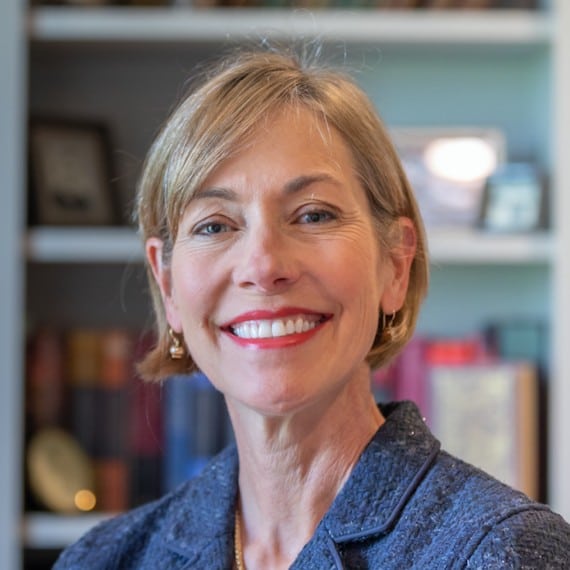
Description:
This seminar will introduce new board members to, and give experienced board members a refresher in, the fundamentals of governance for classical, Christian schools. We will cover the three levels of board duties, the relationship between the board and the Head of School, and the function of the three key board committees.
Bio:
Leslie Moeller has recently been named Head of School for the Geneva School of Boerne, Texas. She also serves on the boards of the Society for Classical Learning; Veritas School in Richmond, Virginia; New Covenant Schools in Lynchburg, Virginia; and the Board of Academic Advisors for the Classic Learning Test. She teaches a class on law and governance for the Gordon College Masters in Educational Leadership program and consults with heads and boards of classical, Christian schools around the country. Leslie received her J.D. from Boston College and her B.A. in Economics and English Literature from the University of Virginia. She and her husband Eric have three children who have all graduated from classical, Christian schools.
Meeting Date and Time
May 7th from 6:00 – 8:00 pm CT.

Description:
This seminar will introduce new board members to, and give experienced board members a refresher in, the fundamentals of governance for classical, Christian schools. We will cover the three levels of board duties, the relationship between the board and the Head of School, and the function of the three key board committees.
Bio:
Leslie Moeller has recently been named Head of School for the Geneva School of Boerne, Texas. She also serves on the boards of the Society for Classical Learning; Veritas School in Richmond, Virginia; New Covenant Schools in Lynchburg, Virginia; and the Board of Academic Advisors for the Classic Learning Test. She teaches a class on law and governance for the Gordon College Masters in Educational Leadership program and consults with heads and boards of classical, Christian schools around the country. Leslie received her J.D. from Boston College and her B.A. in Economics and English Literature from the University of Virginia. She and her husband Eric have three children who have all graduated from classical, Christian schools.
Meeting Date and Time
May 14th from 6:00 – 8:00 pm CT.
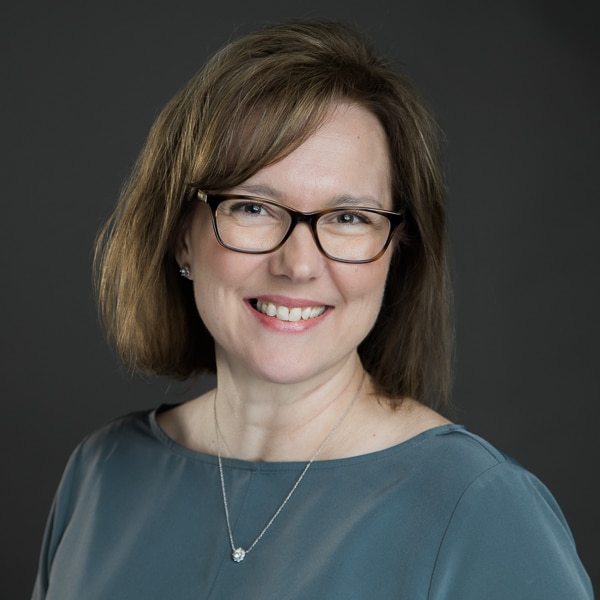
Description:
I love watching a student experience an “a-ha” moment after working through a challenging math problem. What happens, though, when a student appears to not care, continues to struggle, or seems to remember and then forget everything the very next day? This two-hour seminar focuses on building dyscalculia awareness in the mathematics classroom and introducing foundational pedagogy for helping students increase number literacy and concrete understanding of abstract concepts. My hope is that attendees will gain a better understanding of dyscalculia, recognize the needs of a struggling math student, and learn a few strategies that can be used in the classroom and in one-on-one or small group settings.
Bio:
Tiffini is a lifelong lover of teaching and has taught students in the preschool, grammar, logic, and rhetoric years in a mixture of public, private, and home settings over the last 30+ years. Tiffini discovered the classical model while researching the curriculum and fell in love with its methodology and integrated approach to teaching the whole child and to sparking a love of learning. Tiffini has a passion for classical Christian education that instills a pursuit of wisdom and virtue, ultimately found in pursuing the Lord. In 2009, she joined the faculty of Covenant Academy, primarily teaching math and science over the years; she currently serves as the Upper School Principal. She and her husband, Matt, have three grown children—all graduates of Covenant Academy—and are expecting their first grandchild in June!
Meeting Date and Time
February 6th from 6:00 – 8:00 pm CT.
If you have any questions, contact workshops@societyforclassicallearning.org
In Each Workshop, Attendees Will:
Seminar Pricing
Non-Member Price
$200
SCL Member Price
$180
Group (3+) Discount
Member: $144
Non-Member: $160
Workshop Pricing
Non-Member Price
$650
SCL Member Price
$585
Group (3+) Discount
Member: $468
Non-Member: $520
Here’s What Our Members Are Saying
“It was fantastic to be able to speak with other teachers both new and seasoned in Singapore Math and gain knowledge or help with ideas for new people. I LOVED that it was all from a classical Christian background! THE BEST!!!“
– Workshop Attendee
“The instructors were knowledgeable, present, and available. The platform was easy to use. The content was exactly what I needed as a first year counselor building a program. Each class was appropriate to what I needed to learn about the program, timely, and relevant”
– College Advisor
“The community was fantastic and eager to share and help each other. The leaders were a wealth of information and very personable and accessible.”
– SCL Attendee

We’re here to help.
Our team of experts has spent nearly 30 years equipping hundreds of Classical Christian Schools around the world with the tools they need to thrive. From professional development to specialized workshops, our global membership network and online library of resources will give you the confidence you need to grow your school successfully.
500
25
300
200
Join The Thriving Community of Classical Christian Schools
Feel confident that you have been equipped with the knowledge and resources you need to lead your school.

